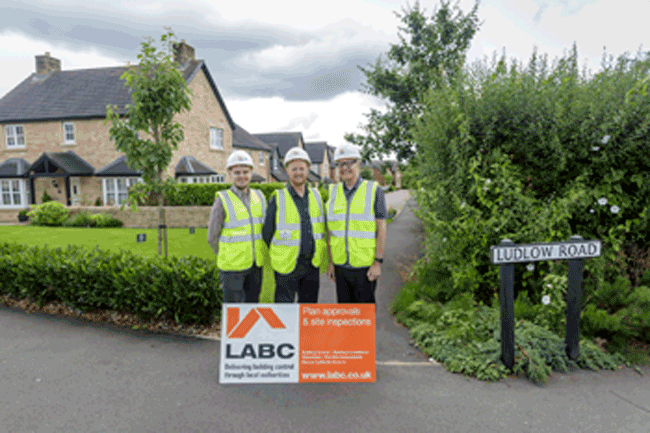Building Inspectors Reach New Heights with National Qualification

A team of building control inspectors from Ribble Valley Council has reached new heights by achieving top health and safety grades.
Three members of the council’s building control team are now able to work on buildings of up to 18 metres (or seven storeys) in height after being accredited by the Health and Safety Executive.
They achieved a 2F rating – the highest possible within the HSE’s general classification – with only specialist inspectors being graded above them.
“We’re very proud of the fact that the Ribble Valley team has achieved this tough and exacting professional standard,” said Jimmy Mulkerrin, senior building control surveyor.
“It means we can work on a wide range of buildings, including some very large developments, and continue to deliver a top-class service to the borough.
“Building inspectors play a crucial role in safeguarding public safety and ensuring the structural integrity of buildings within their jurisdiction
“The building control service nationally has seen a loss of staff due to retirement or people moving away from the profession but were pleased to say we’ve got a fully-staffed and professional team at the council.”
Building control inspectors carry out a wide range of work to ensure that buildings comply with strict national codes and regulations to ensure they are safe and don’t pose any danger to the public and the people who use them.
This work includes reviewing plans, carrying out site inspections, taking enforcement action and providing advice and expertise to developers and builders.
From April 2024, due to the Grenfell Tower disaster, building control and how its delivered and regulated has seen major change.
All building inspectors are regulated by the HSE and are required to be on a professional register to continue carrying out building control functions. They have to prove their competence by submitting evidence and passing an exam.
The exam results then give you a level of registration to work on buildings at certain heights and risk.
Exam and competence must be proven every four years to continue to practice as a building control inspector.


